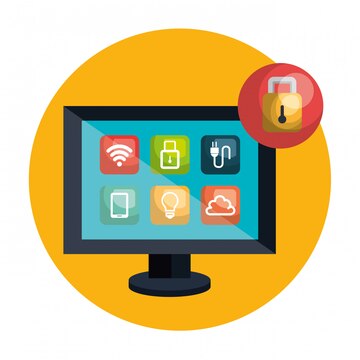Expected Innovation of a Computer-Controlled Home
What is a Smart Home?
The term "smart home" applies to a residence equipped with lighting, appliances, heating, televisions, air conditioning, entertainment sound / visual systems, computers, cameras, and security systems that can communicate with one another over the internet with voice assistants Bluetooth Z wave or Zigbee.
Innovative home technology contributes to the conservation of the world’s finite resources.
Possibilities and Concerns of a Smart Home
Individuals are becoming increasingly aware of the capabilities of innovative home technology. However, many are concerned about privacy, excessive surveillance, identity theft, malware, tracking, and the amount of data collected from their devices.
However, the allure of an intelligent home is too irresistible. Possibilities such as keeping the temperature in check with a smartphone or virtual assistant are too alluring. These devices can control intelligent thermostats because they are Wi-Fi connected.
They can tell when to turn off the heat or air conditioning to save energy. Using a virtual assistant to set up a smart thermostat gives you the added benefit of managing the temperature in your home from anywhere using your voice.

Smart Home Platforms
If you have been keen on artificial outfitted home solutions, you must have heard that you should first choose an innovative home platform before buying any smart gadget.
Amazon, Google, Apple, and Samsung are the four major platforms. These platforms use an intelligent assistant to assist you in setting up, controlling, and automating your smart home devices.
If you're more technical or want to go beyond the capabilities of these leading platforms, you can use third-party platforms such as Homey, HomeBridge, and others.
Smart Homes Drawbacks
In 2024, selecting your intelligent home platform first makes sense, though this strategy has some drawbacks.
The primary disadvantage is lock-in. For example, if you buy TP-Link smart plugs that are compatible with Google and Amazon's smart home platforms but later decide to use Apple's HomeKit, those smart plugs will not work with Apple's platform.
Fortunately, Matter shall finally address these drawbacks later this year. The Matter is a new intelligent home standard, a combined effort by all major smart home platforms and gadgets manufacturers, and will be released later this year.
So, how will Matter Affect you as a Home User?
Three things. It will make it easier to set up smart home gadgets, for starters. Secondly, it will make it easier to manage smart devices. Third, and perhaps most significantly, the devices you purchase that support Matter will be compatible with various smart home platforms.
So, when you purchase a Nest thermostat from Google that supports Matter, you will theoretically use Siri and HomeKit to control that thermostat, which is currently not possible.
Local control is another advantage of Matter. When you ask an intelligent assistant to control the lights or open your smart home app to adjust the thermostat, the commands are routed through your local network rather than the cloud, making your smart home faster and more reliable. If the Matter logo appears on the packaging, you purchase a compatible device.
To begin, Matter will support light fixtures, smart plugs, outlets, door locks, thermostats, blinds and shades, garage door openers, home security sensors, wireless access points, bridges, TVs, and all streaming devices.
Please remember that security systems and cameras were not included in the matter 1.0 standard when writing this.
If you're building a smart home from the ground up or want to see whether the company can upgrade your existing devices to the Matter standard, look into the packaging. Yes, they may be on the list. Matter uses thread and WiFi for its communications, so these devices typically include these two radios.
This year, popular devices from manufacturers that will adhere to Matter include Echo devices, Eero Wi-Fi routers, Nest displays, and speakers. Others are the latest Nest Thermostat, Apple's Home Pod Mini, Apple TV 4k, Samsung SmartThings Hubs, Samsung intelligent appliances, and smart TVs. The Matter will be compatible with Android, iOS, and iPad OS devices (6 months later).
Please keep in mind the higher-priced Nest Learning Thermostat will not be updated to Matter, and Amazon's Ring has not yet announced Matter support.
The Take-Away
Suppose you're looking to purchase any intelligent devices before the Matter standard becomes available later this year. It's worth doing a quick Google search to see if the device you're considering will be able to upgrade to Matter later on.
If it isn't compatible, keep in mind that it may not work with your preferred smart home platform.